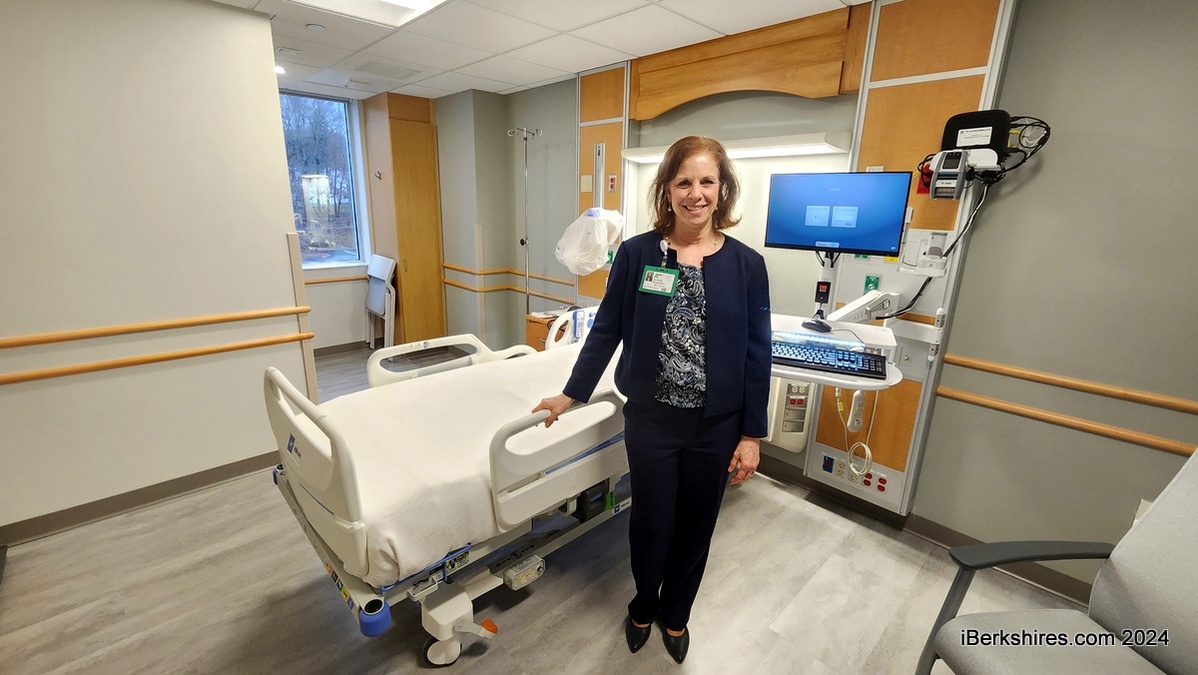
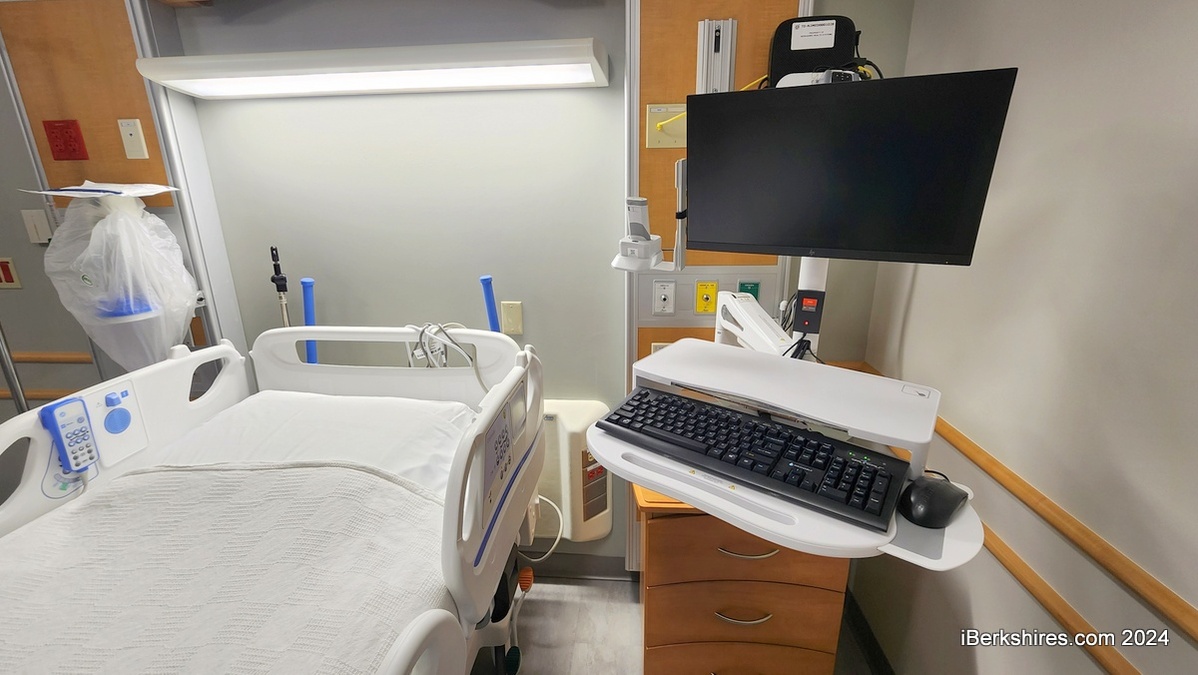
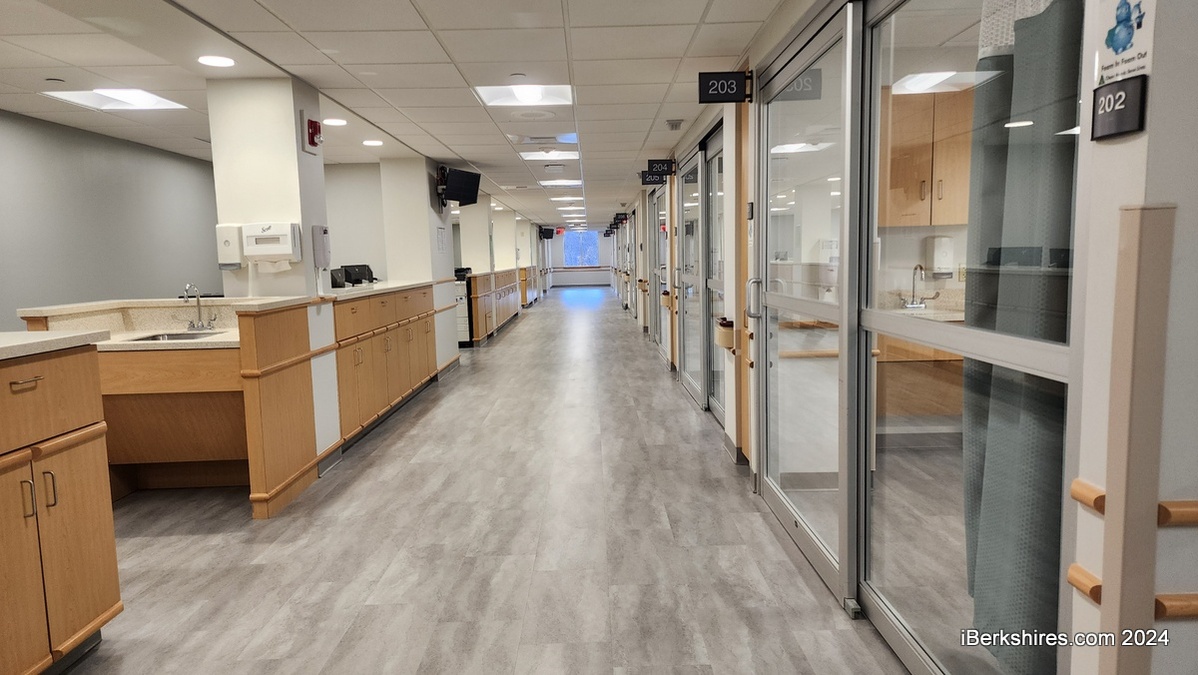
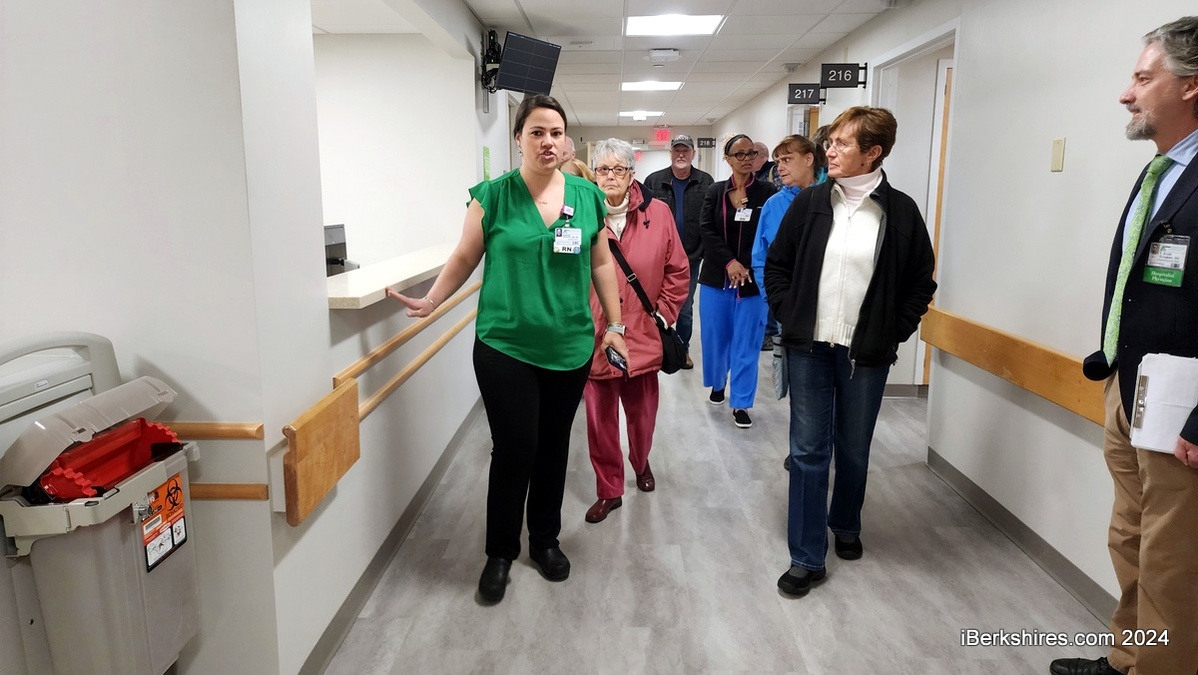
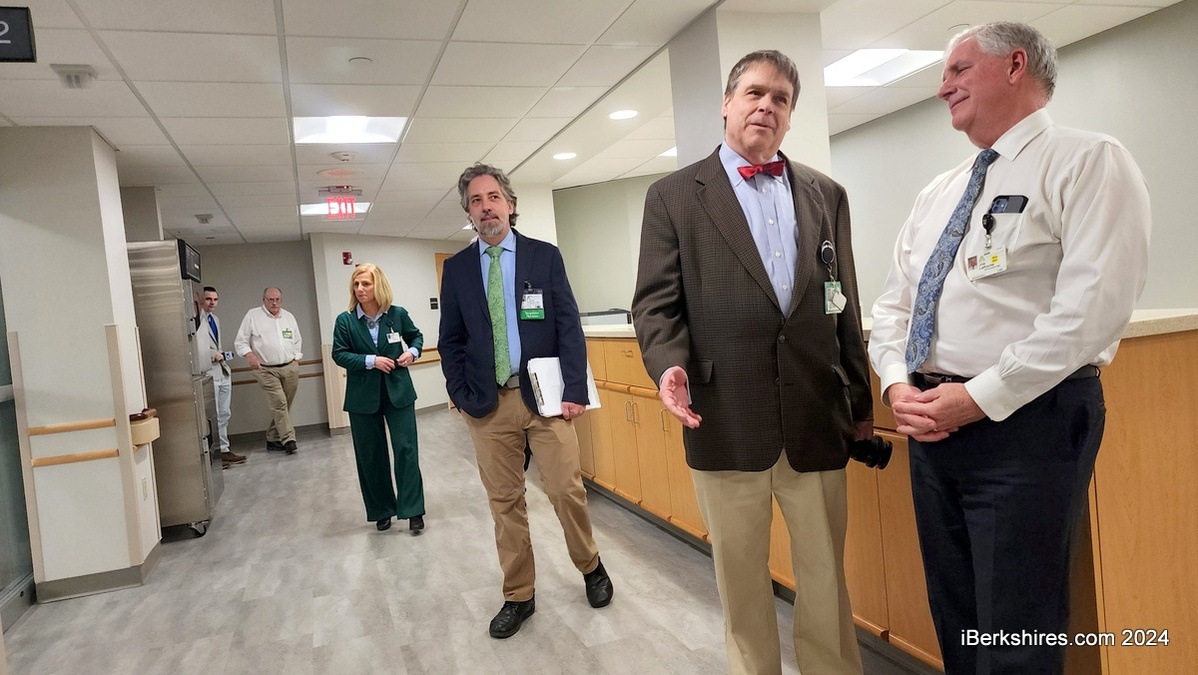
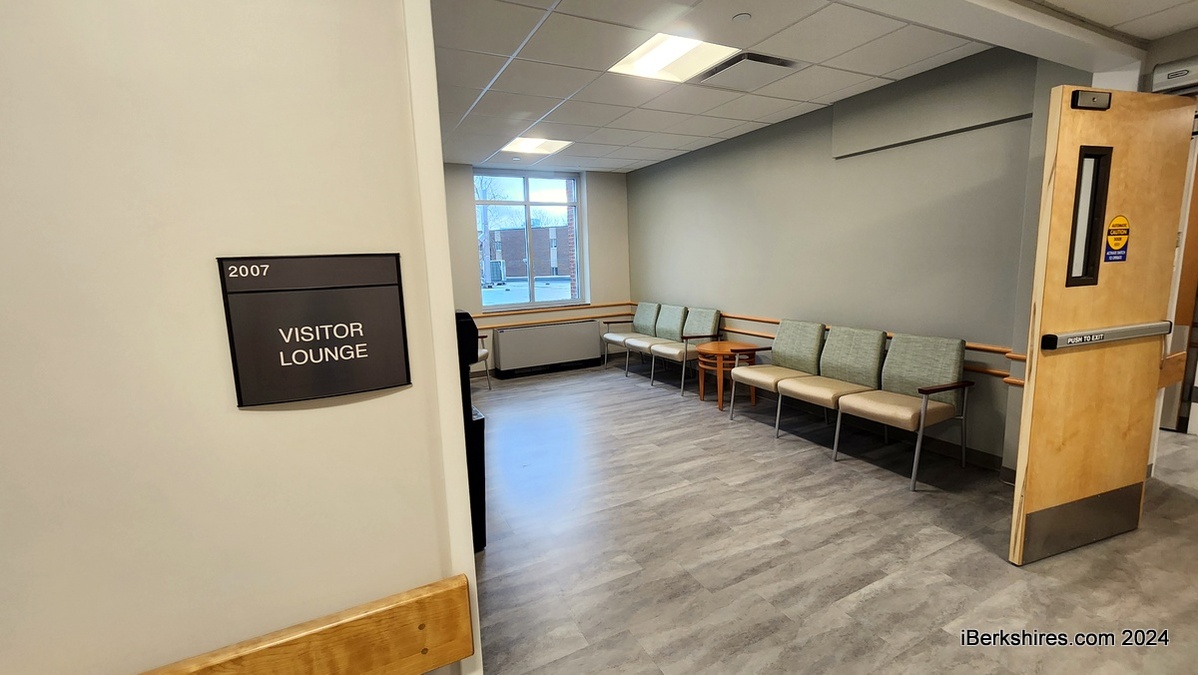
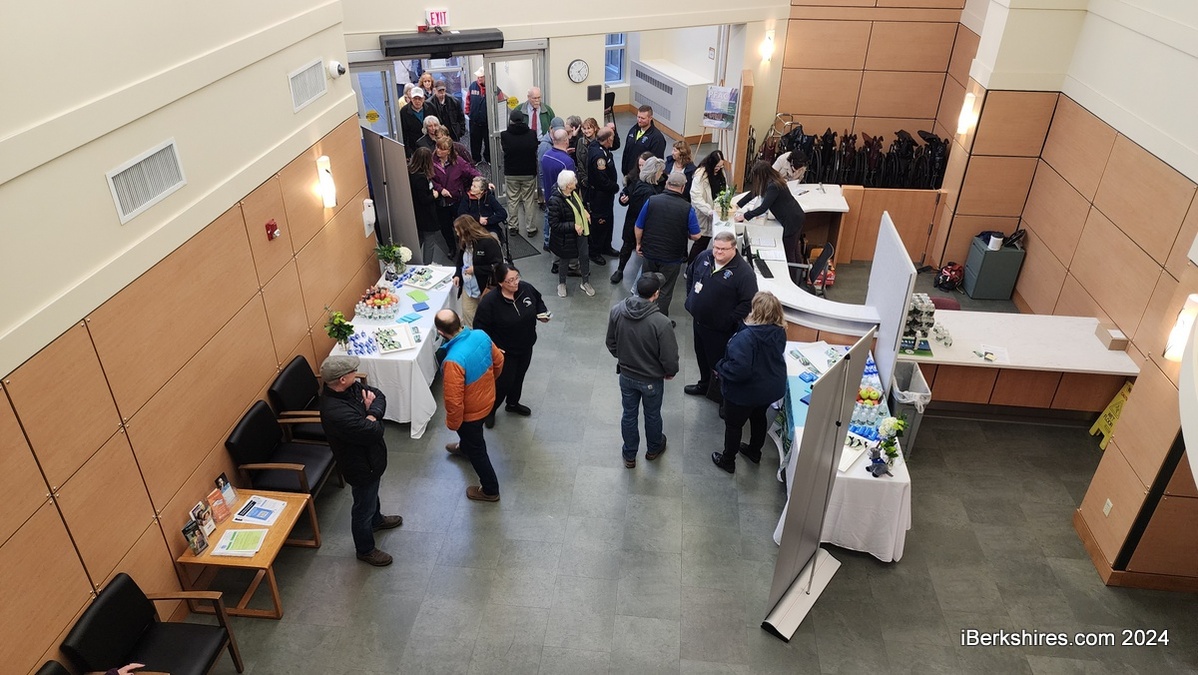
North Adams Hospital's Revamped 2 North Welcomes Community

BHS President Darlene Rodowicz, left, and Lou Ann Quinn, nursing director of surgical services, the 'face of NARH.'
"Absolutely beautiful. Absolutely beautiful. We've needed it for a long time. I'm happy to see it here," said Patricia Clairmont of Adams. "We used this hospital a lot for our X-rays and things like that."
Clairmont, who grew up on North Adams, was born in the "old" hospital and her children in this one.
Her comments were echoed throughout 2 North as dozens of people walked through the wing to look at the refurbished hospital rooms ready and waiting for patients.
"It's so exciting to be part of bringing this back to our community, and the support in the community, it's the excitement and it is their hospital," said Laurie Lamarre, vice president of North Adams Regional who had worked at the hospital before it closed. "It's great to bring expanded services ... you hear all those stories about transportation, and how difficult getting down to Pittsfield. And so to be able to provide care here, and expanded care, is great."
The upgrade is part of a $2.8 million investment by Berkshire Health Systems to prepare the building to resume operations as a critical care access hospital.
North Adams Regional Hospital closed 10 years ago this March when its health-care system went bankrupt. It was purchased by Berkshire Medical Center, which restored emergency and medical services to the campus and, last year, was able to pursue a "critical access hospital" designation that allowed it to reopen.
Darlene Rodowicz, BHS president and CEO, has been cautious about an actual date for opening since its pending several licensures and certifications, but believes it will be admitting its first patients by the end of this month.
The facility's gone through a number of inspections, including a three-day survey last week for licensure. It's also waiting for the U.S. Drug Enforcement Agency and Massachusetts Controlled Substances approvals to be able to dispense meds.
At that point, the newly opened hospital will have to take in two patients each for a 48-hour stay. The Department of Public Health, on behalf the U.S. Centers for Medicare & Medicaid Services, will do final review and the hospital will be cleared for federal reimbursements.
"We want to work out our bugs and our processes in a new building," Rodowicz said. "So three or four patients, I think initially, and they'll be inpatients and observations. For the survey, they have to be inpatients for a two-night stay."
Senior Director of Clinical Operations Robert Boebert said they'll also be doing some internal drills, running several "patients" through the complete process from admission to surgery or treatment to discharge to billing, including with Northern Berkshire EMS.
"I think one of the important things is that you have the multidisciplinary team, right, so from the lab to pharmacy to therapy — it will be here to support and address anything that has a failure at that point," he said.
"Every little detail that we can think up on how we bring patients here and how we discharge patients, just going to go through process."
Admissions will be slowly expanded to up to 10 though the hospital's designation as a critical-care access facility allows for 25 beds. The rooms on 2 North, which had two- and four-bed wards as well as intensive care, have been converted into 18 private rooms, most with bathrooms.
Each room also has a window, new headwall systems (architectural features that carry electric, gas and other needs) and computers, the capability for telemonitoring, and large sliding glass doors that block noise for the patient but allow for observation by medical staff. The nurses' station runs parallel to the rooms and new elements include a charting station for doctors, an accessible shower, storage and refreshed visitor's lounge.
The entire floor's been freshened with flooring, paint, wallcoverings and woodwork and the elevator closest to the wing (closed for several years) has been replaced.
Hidee Taylor, a certified nursing assistant, is new to the hospital but excited to begin working in the unit. She'll be the unit assistant, a combination of administrative and clinical functions, and has plans to become a nurse.
"It's a beautiful floor. I think everybody's going to be wonderfully cared for," she said. "I'm super excited about my new position."
For Lou Ann Quinn, described by Rodowicz as the "face of NARH," it's a chance to see the hospital return before she retires.
"This is exciting. This is just everything to me," said Quinn, nursing director of surgical services. "When the hospital closed, I had opportunities to go anywhere. And I chose to stay with my community and I was honored that Berkshire Medical Center hired me to kind of be that transition person. ...
"It's an honor to see this process happen because I think we're going to do the best for the patients."
Tags: NARH,















